Table of Contents
Natural Aromatherapy
In our busy, high-paced world, stress and anxiety are unfortunately all too common. However, amid the tumult, we've been increasingly turning back to nature for relief. One powerful tool that has captured our attention is natural aromatherapy. This ancient practice holds incredible potential to help us relax, unwind, and effectively manage our stress and anxiety levels.
With this in-depth guide, we'll delve into the world of natural aromatherapy, exploring its history, various methodologies, and scientifically-backed benefits, particularly in stress and anxiety reduction.
Understanding Aromatherapy
The concept of aromatherapy, or essential oil therapy, traces back to ancient civilizations, including the Egyptians, Chinese, Indians, and Greeks. These cultures recognized the therapeutic properties of aromatic plant extracts, using them for spiritual, medicinal, and cosmetic purposes.
In essence, aromatherapy is a holistic healing treatment that utilizes natural plant extracts, namely essential oils, to enhance physical and mental health. The term “aromatherapy” itself emerged in the 1930s, coined by French chemist Rene-Maurice Gattefosse, who discovered lavender's healing properties after a laboratory accident.
How Does Aromatherapy Work?
Aromatherapy functions through the sense of smell and skin absorption. The inhaled aroma from essential oils stimulates the olfactory system, the part of the brain connected to smell. The scent molecules reach the brain's limbic system, an area linked to emotions, memory, and instincts, influencing mental, physical, and emotional wellbeing.
Through topical application, the oils can also be absorbed by the skin and transported around the body, providing localized and systemic benefits.
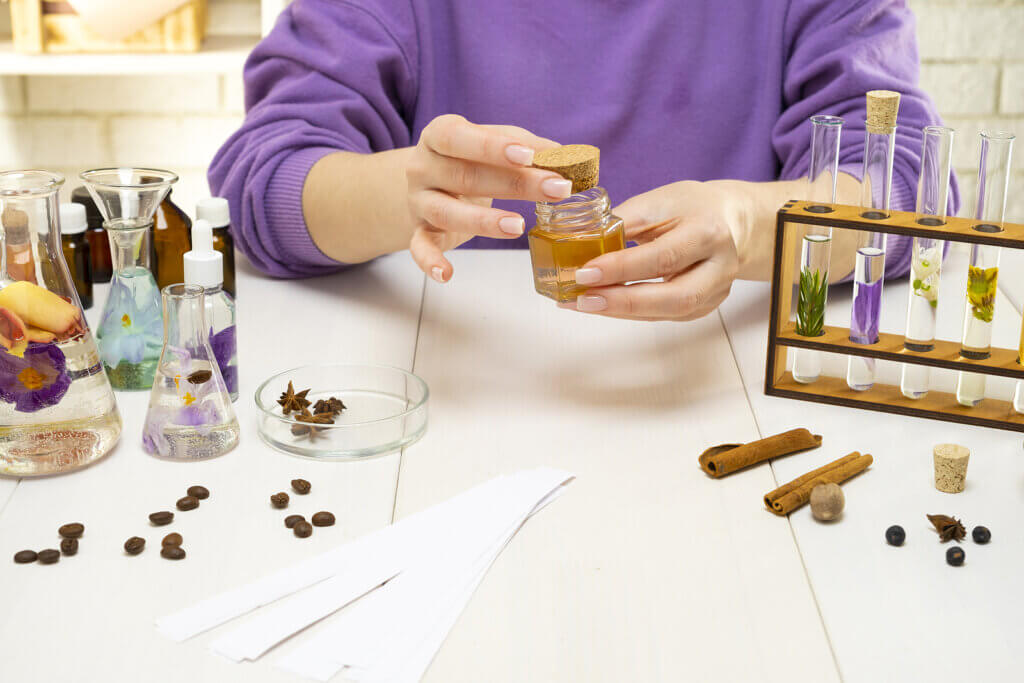
Essential Oils: The Lifeblood of Aromatherapy
Derived from plants' leaves, bark, stems, flowers, and roots, essential oils are the lifeblood of aromatherapy. They are highly concentrated, carrying the essence of the plant they come from, and harbor a multitude of therapeutic properties.
How to Use Aromatherapy to Reduce Stress and Anxiety
Harnessing the therapeutic benefits of essential oils through aromatherapy can significantly alleviate stress and anxiety. There are a variety of methods you can use to integrate aromatherapy into your daily routine:
1. Aromatherapy through Diffusion
An effective and easy way to benefit from essential oils is by using an oil diffuser. This device disperses your chosen oil's scent throughout your living or working space, enveloping you with a tranquil atmosphere. Here's how you can leverage diffusion:
- Choosing Your Diffuser: There are several types of diffusers available, including ultrasonic, heat, and evaporative. Pick one that suits your needs and aesthetics.
- Picking Your Essential Oils: Select oils known for their calming properties, such as lavender, bergamot, or chamomile.
- Setting Up: Place your diffuser in a central area, add water (if required), and a few drops of your chosen oil, then switch on the device.
2. Aromatherapy through Direct Inhalation
Directly inhaling the scent of an essential oil can provide quick relief from anxiety and stress. The scent molecules immediately stimulate the olfactory system, providing rapid stress-relieving effects. Here's a step-by-step process:
- Choose Your Essential Oil: Pick an oil known for its stress-relieving properties.
- Inhalation Method: Simply uncap the essential oil bottle and take a deep breath, or you can drop a few drops on a handkerchief and sniff when needed.
3. Aromatherapy through Massage
Combining the benefits of touch and aroma, an aromatherapy massage can be a deeply relaxing and stress-alleviating experience. Here's how to prepare an aromatherapy massage:
- Dilute the Essential Oil: Always remember to dilute your chosen essential oil with a carrier oil like almond, coconut, or jojoba oil. The standard dilution is usually 3 to 5 drops of essential oil per 10ml of carrier oil.
- Apply: Use this mixture to gently massage stress points like the neck, shoulders, and back, or have someone else give you a full body massage.
4. Aromatherapy Baths
A warm bath can be made even more relaxing with the addition of essential oils. This method allows your skin to absorb the oils and you to inhale the soothing scent. Here's how to prepare an aromatherapy bath:
- Choose Your Essential Oils: Opt for oils known for their relaxation properties.
- Mix with Bathwater: Add about 5 to 10 drops of essential oil to your bathwater and stir well to ensure the oil disperses evenly in the water.
- Relax: Soak in the tub, take deep breaths to fully inhale the aroma, and let the relaxation set in.
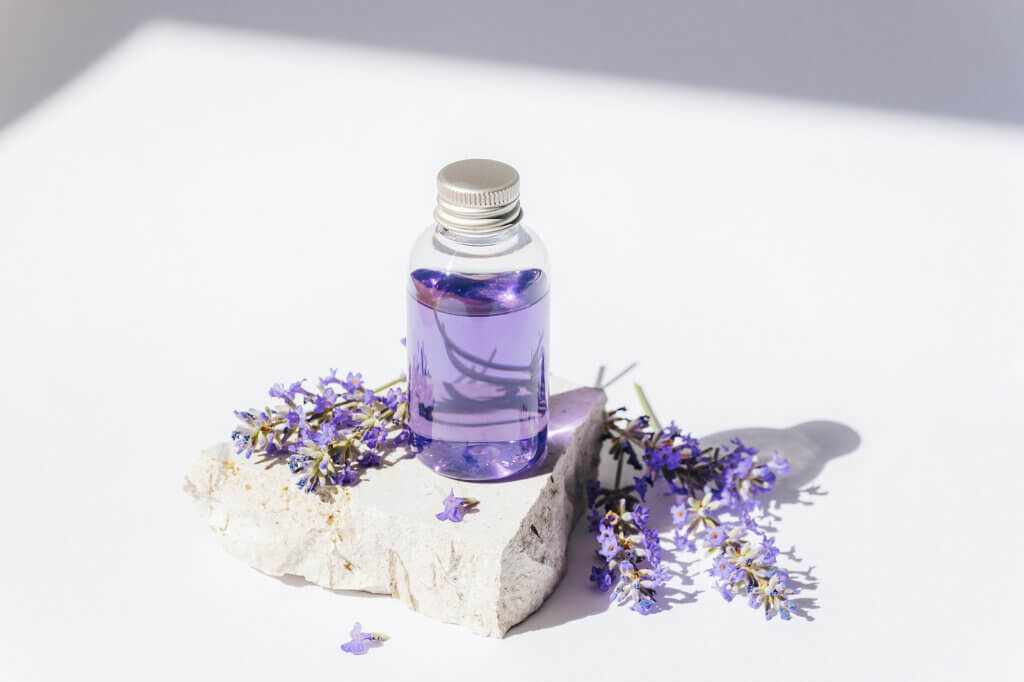
Five Essential Oils for Anxiety and Stress Relief
A myriad of essential oils exists, each with unique properties that cater to different therapeutic needs. When it comes to stress and anxiety relief, certain oils have gained recognition due to their calming and soothing properties, backed by scientific research. Here are the top five essential oils for combating stress and anxiety:
1. Lavender Essential Oil
Reputed as one of the most effective essential oils for anxiety and stress relief, lavender holds a rich history of promoting calm and tranquility. Lavender's calming properties can:
- Alleviate Anxiety: Several studies have shown lavender's potency in reducing anxiety levels.
- Promote Quality Sleep: Its calming scent aids in improving sleep duration and quality, which is vital for mental health.
- Relieve Headaches: Lavender has also been used traditionally to relieve tension and migraine headaches, common symptoms of stress.
2. Chamomile Essential Oil
Chamomile, particularly Roman Chamomile, is revered for its tranquilizing effects. The benefits of chamomile oil extend to:
- Nervous System Relaxation: Its soothing effect helps calm an overactive nervous system, reducing feelings of anxiety.
- Sleep Enhancement: Like lavender, chamomile also promotes better sleep, making it a good choice for those dealing with insomnia.
3. Rose Essential Oil
Extracted from the petals of different types of rose plants, rose oil has a soothing aroma that promotes emotional well-being. Its benefits include:
- Promoting Relaxation: Rose oil has been found to create a more relaxed state, easing stress and anxiety symptoms.
- Reducing Depression Symptoms: Several studies suggest that rose oil can help alleviate depression symptoms, often linked with chronic stress and anxiety.
4. Bergamot Essential Oil
Bergamot oil, with its unique citrusy aroma, is notable for its uplifting properties. The benefits of bergamot oil are:
- Anxiety Reduction: Studies have shown that bergamot oil can decrease anxiety and stress levels, promoting mood enhancement.
- Inducing Positive Feelings: Its refreshing and uplifting scent can help dispel gloomy thoughts and induce positive feelings.
5. Frankincense Essential Oil
Used since biblical times for its myriad health benefits, frankincense oil provides a calming and grounding effect, making it ideal for stress and anxiety relief:
- Promoting Peace and Relaxation: Its potent calming properties can help induce a feeling of peace and relaxation.
- Enhancing Meditation: Often used in meditation, frankincense can deepen the breathing and enhance mental tranquility.
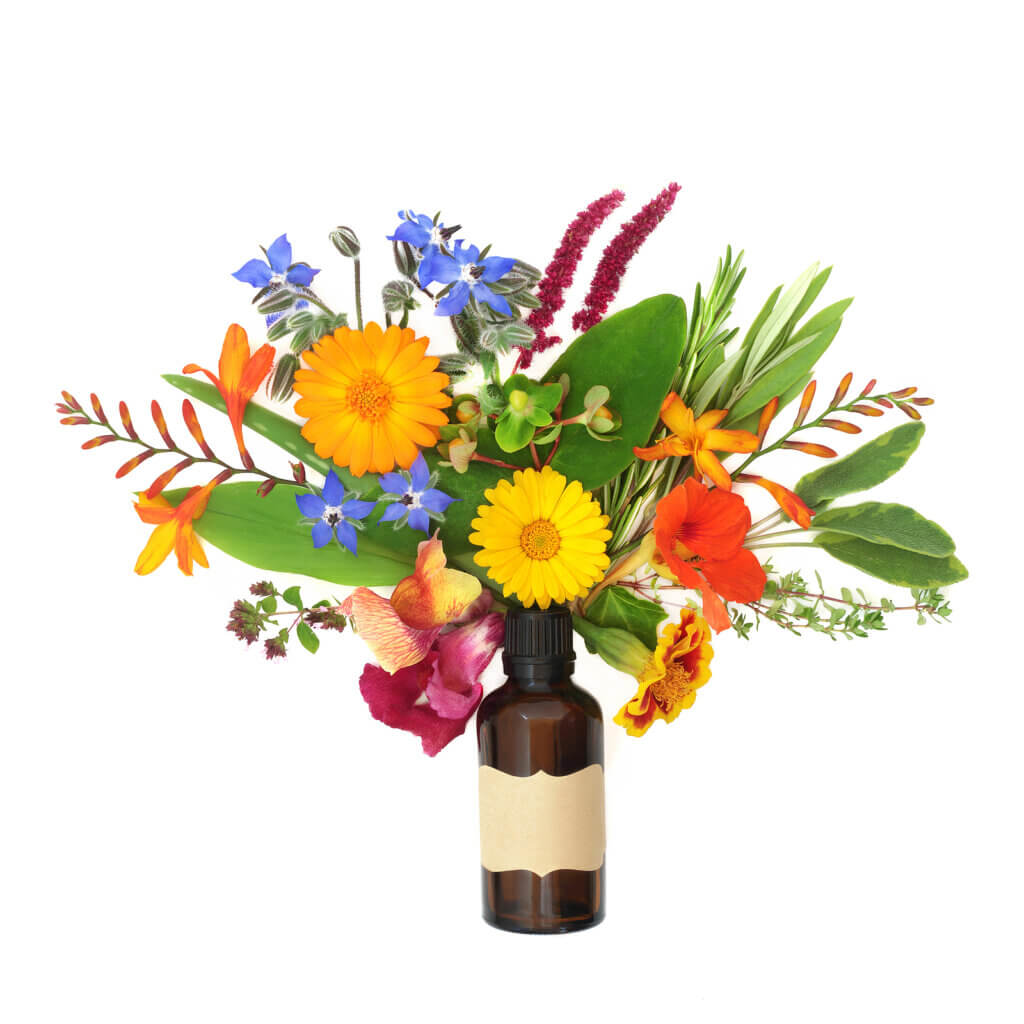
Safety Measures and Tips for Effective Aromatherapy
While aromatherapy is a natural and often beneficial method to alleviate stress and anxiety, it's crucial to adhere to safety guidelines to ensure the effective and safe usage of essential oils. Here are some important safety measures and tips to remember:
1. Conduct a Patch Test
One of the key precautions before using any new essential oil is to perform a patch test. This test is crucial to identify potential skin sensitivity or allergic reactions to the oil. Here's how you do it:
- Prepare Your Mixture: Mix a drop or two of essential oil with a small amount of carrier oil.
- Apply: Dab a small amount of this mixture on the inside of your wrist or elbow.
- Wait and Observe: Wait for at least 24 hours to see if any redness, itching, or irritation occurs. If any adverse reaction is observed, discontinue the use of that oil.
2. Proper Dilution of Essential Oils
Due to their highly concentrated nature, essential oils should never be applied directly onto the skin as it can lead to irritation or sensitization. Dilution is a crucial step in safely using essential oils:
- Choose a Carrier Oil: Carrier oils such as jojoba, sweet almond, or coconut oil are typically used to dilute essential oils.
- Measure Appropriately: A general rule of thumb is to add 1-2 drops of essential oil per teaspoon of carrier oil for adults. However, some oils may require more dilution, so it's essential to refer to dilution guidelines.
3. Consultation with a Healthcare Professional
Before incorporating aromatherapy into your routine, especially if you are pregnant, breastfeeding, or have underlying health conditions, it's prudent to consult with a healthcare professional:
- Disclose Your Health Status: Be sure to share any existing health conditions, medications, or supplements you're currently taking.
- Discuss Your Aromatherapy Plan: Discuss the essential oils you plan to use, how you plan to use them, and the intended purpose.
- Follow Their Guidance: Always adhere to the guidance provided by your healthcare professional, including dosage and application methods.
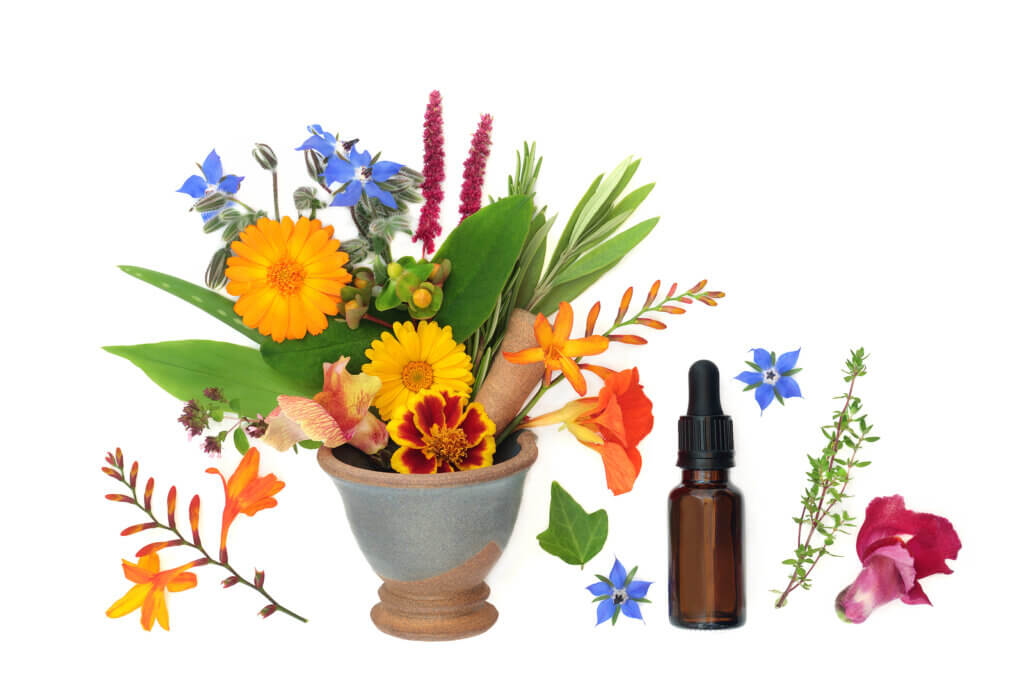
The Science Behind Aromatherapy and Stress Reduction
The science behind the efficacy of aromatherapy in managing stress and anxiety delves into how essential oils interact with different systems in our bodies, leading to a calming and restorative effect. Let's delve deeper into this:
1. Influence on the Autonomic Nervous System
Our autonomic nervous system (ANS) governs the involuntary functions of our body, including heart rate, respiration, and digestion. Research has shown that certain essential oils can have a soothing impact on the ANS:
- Calming Effect: Essential oils such as lavender and chamomile can slow down the body's automatic responses, potentially decreasing heart rate and blood pressure.
- Reducing Stress and Anxiety: The calming effect can help mitigate the physical symptoms associated with stress and anxiety, creating a sense of tranquility and relaxation.
2. Impact on the Brain's Neurochemistry
Essential oils can stimulate the brain to release neurotransmitters, chemicals that transmit signals in the brain and play a vital role in mood regulation:
- Serotonin Release: Essential oils like lavender have been found to stimulate the release of serotonin, a neurotransmitter associated with feelings of well-being and happiness.
- Dopamine Regulation: Other oils may encourage the release of dopamine, another mood-enhancing neurotransmitter, contributing to a positive mood state.
3. Regulation of Hormonal Balance
Aromatherapy may also influence our hormonal system, which plays a significant role in stress response:
- Cortisol Balance: Essential oils such as rose and sandalwood can help modulate cortisol levels – the ‘stress hormone.' When balanced, this can lead to decreased feelings of stress and anxiety.
4. Enhancement of Immune System Function
Chronic stress and anxiety can impair our immune system's function. Certain essential oils can counteract this:
- Immune Support: Oils like frankincense and tea tree possess antioxidant, anti-inflammatory, and antimicrobial properties, which can support and boost our immune system.
- Stress Reduction: By enhancing our immune response, these oils can help the body better handle stress and fend off illness.
5. Promotion of Quality Sleep
Stress and anxiety often lead to sleep disturbances. Aromatherapy can provide a natural solution to improve sleep quality:
- Sleep Induction: Essential oils like chamomile and lavender have been scientifically proven to promote better sleep by stimulating the release of hormones conducive to sleep and reducing stress levels.
- Improved Well-being: With better sleep quality, one can experience improved mood, increased energy, and overall better capacity to manage stress and anxiety.
Chronic stress and anxiety can often lead to sleep disturbances. Several essential oils have been proven to improve sleep quality:
- Promoting Sleep-inducing Hormones: Oils like chamomile and lavender can increase the release of sleep-inducing hormones and reduce stress levels, leading to a better night's sleep.
Five Best Aromatherapy Practices for Stress and Anxiety Relief
1. The Art of Regular Diffusion
Incorporating the practice of regular diffusion into your daily routine can create a tranquil atmosphere in your home or workplace. Essential oil diffusers work by breaking down oil into micro-particles and then propelling them into the air. As you breathe in these aromatic particles, they stimulate your olfactory system, invoking a sense of calm and peace. Opt for oils like lavender or chamomile to maximize relaxation and stress relief.
2. The Double Relief of Aromatherapy Baths
Combining the soothing power of warm water with the therapeutic benefits of essential oils, aromatherapy baths serve as an exceptional method for stress relief. The warm water eases physical tension, while the aromatic vapors from the essential oils act on your nervous system, promoting psychological relaxation. Add oils such as ylang-ylang or rose to your bath for a luxurious, tension-melting soak.
3. The Power of Aromatherapy Massage
When integrated into massage therapy, essential oils can significantly enhance the stress-reducing benefits. The physical manipulation involved in a massage alleviates muscle tension, while the aromas from the oils trigger relaxation responses in the brain. Try a massage with a blend of carrier oil like sweet almond or jojoba, mixed with calming essential oils like lavender or frankincense, to achieve deep relaxation and lower stress hormone levels.
4. The Serenity of Aromatherapy Meditation
Incorporating aromatherapy into your meditation or yoga practice can bring about deeper levels of tranquility and focus. Essential oils like sandalwood, frankincense, or cedarwood, known for their grounding properties, can enhance your connection to the present moment. Diffuse these oils during your practice or apply a drop or two to your temples or wrists to aid in calming the mind and deepening your meditative state.
5. The Calm of Bedtime Aromatherapy
Implementing aromatherapy into your bedtime routine can significantly improve sleep quality, a key factor in managing stress and anxiety. Try adding a few drops of lavender or chamomile oil, both known for their sleep-enhancing properties, to your pillow or bed linen. As you breathe in the soothing aroma, your body's relaxation response is triggered, promoting deeper, more restful sleep, and leaving you refreshed and less stressed upon waking.
Top Five DIY Aromatherapy Blends for Stress Relief
1. Serenity-Inducing Calming Blend
For a calming blend that can soothe your senses and help relieve stress, mix 3 drops of lavender oil, renowned for its relaxing properties; 2 drops of chamomile oil, known for its sleep-inducing and calming effects; and 1 drop of frankincense oil, celebrated for its tranquilizing and mood-enhancing properties. This aromatic concoction can be diffused in your home or added to your bath water for a therapeutic soak that's sure to alleviate tension and stress.
2. Mood-Elevating Uplifting Blend
If you need an immediate mood booster, combine 3 drops of bergamot oil, celebrated for its mood-enhancing properties; 2 drops of ylang-ylang oil, recognized for its ability to fight depression and lower high blood pressure; and 1 drop of peppermint oil, famed for its invigorating and refreshing properties. Diffuse this blend in your workspace or living area to encourage an environment of positivity and energy.
3. Sleep-Inducing Blend
Create a soothing bedtime blend by combining 4 drops of lavender oil, known for its sleep-inducing qualities; and 2 drops of cedarwood oil, celebrated for its calming and grounding properties. This blend, when diffused in your bedroom or added to a diffuser pendant on your bedside, can promote a peaceful night's sleep, helping you wake up rejuvenated and less stressed.
4. Concentration-Enhancing Focus Blend
To create a blend that enhances focus and alleviates stress, mix 2 drops each of rosemary oil, reputed for its cognitive boosting capabilities; peppermint oil, recognized for its alertness-enhancing properties; and lemon oil, known for its invigorating and mood-lifting characteristics. This blend, when diffused in your workspace, can boost your focus, lighten your mood, and keep stress at bay.
5. Deeply Relaxing Blend
For a deeply relaxing blend, perfect for meditation or winding down after a hectic day, combine 3 drops of sandalwood oil, renowned for its grounding and mood-enhancing effects; 2 drops of chamomile oil, known for its calming and sedative properties; and 2 drops of vetiver oil, recognized for its soothing and calming effects. This blend, when used in a diffuser or applied topically after dilution with a carrier oil, can help you achieve a state of deep relaxation, significantly reducing stress levels.
Five Top Aromatherapy Products for Stress Relief
1. Transformative Essential Oil Diffusers
Essential oil diffusers are innovative devices that disperse the therapeutic essence of essential oils into the air, transforming your space into a sanctuary of tranquility. There are various types tailored to different needs and preferences:
- Ultrasonic diffusers, which use water and ultrasonic waves to disperse oil particles into the air.
- Nebulizing diffusers, which atomize the oils and then release them into the air for a more potent aroma.
- Heat diffusers, which gently heat the oils to aid in evaporation and fragrance distribution.
- Evaporative diffusers, which allow the oil to naturally evaporate and disperse into the room.
Choosing the right diffuser depends on your specific needs, desired intensity, and the size of the space where you will use it.
2. Portable Essential Oil Roller Balls
For those who require stress relief on the go, essential oil roller balls are the perfect solution. They contain essential oils pre-diluted with a carrier oil, allowing for safe and direct application to the skin. You can easily apply these to pulse points—such as the wrists, temples, or behind the ears—for a quick stress-relieving aromatic experience, no matter where you are.
3. Soothing Aromatherapy Candles
Aromatherapy candles are not only mood-setting elements for your home decor but also powerful tools for stress relief. Crafted with pure essential oils, when lit, these candles release calming, therapeutic scents into your environment. The flickering light combined with the soothing aromas can create a peaceful atmosphere, perfect for relaxation and stress reduction.
4. Luxurious Aromatherapy Bath Salts
Aromatherapy bath salts offer a spa-like experience right in your home. Infused with a blend of essential oils, these bath salts not only help detoxify and nourish your skin but also transform your bath into a stress-relieving soak. As you immerse yourself in the warm, aromatic water, the stress of the day simply melts away.
5. Therapeutic Aromatherapy Massage Oils
Aromatherapy massage oils are a blend of carrier oils and essential oils, designed to deliver stress-relieving benefits right to your muscles. They allow for a smooth gliding motion for massage, while the essential oils work to alleviate tension, reduce stress, and promote relaxation. Using these oils for self-massage or in professional massage therapy can significantly enhance the calming benefits of touch.
Conclusion: Creating Your Personal Aromatherapy Routine
Developing an aromatherapy routine that fits your lifestyle can make a significant difference in managing stress and anxiety. You might start your day with an uplifting blend, diffuse a focus-enhancing mixture during work, and end your day with a soothing bedtime aroma. Remember, the beauty of aromatherapy lies in its versatility – tailor it to your needs and enjoy the serenity it brings.
Sources
- Aromatherapy and Essential Oils (PDQ®)–Health Professional Version. (2021). National Cancer Institute. Retrieved from: https://www.cancer.gov/about-cancer/treatment/cam/hp/aromatherapy-pdq
- Koulivand, P. H., Khaleghi Ghadiri, M., & Gorji, A. (2013). Lavender and the nervous system. Evidence-Based Complementary and Alternative Medicine. Retrieved from: https://www.ncbi.nlm.nih.gov/pmc/articles/PMC3612440/
- Ali, B., Al-Wabel, N. A., Shams, S., Ahamad, A., Khan, S. A., & Anwar, F. (2015). Essential oils used in aromatherapy: A systemic review. Asian Pacific Journal of Tropical Biomedicine. Retrieved from: https://www.sciencedirect.com/science/article/pii/S2221169115001033
- Mayo Clinic Staff. (2019). Aromatherapy: Is it worthwhile? Mayo Clinic. Retrieved from: https://www.mayoclinic.org/healthy-lifestyle/consumer-health/expert-answers/aromatherapy/faq-20058566


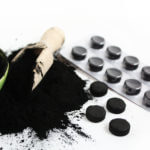

Comments
Loading…